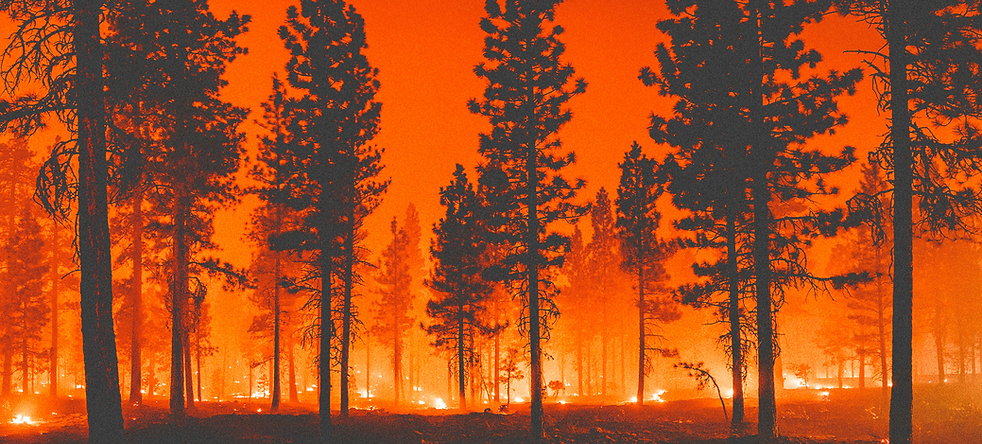
Geographically Weighted Regression Analysis of Wildfires in British Columbia
Joshua Green

OBJECTIVE
Mitigating wildfire risk and enhancing community resilience to disaster events requires adaptive management practices and science-informed decision-making. It is critical that we understand the factors influencing wildfire events in order to develop efficient strategies for fire prevention and management. Thus, this study used several types of regression analysis to advance understanding of the spatial relationships of factors driving wildfire events and the spatial distribution of fires in British Columbia.
Regression analysis is a statistical method of quantifying the relationship between a dependent (observed) variable and one or more independent (explanatory) variables. This study implemented a combination of Ordinary Least Squared (OLS) Linear Regression and Geographically Weighted Regression (GWR) analysis to explore long-term wildfire occurrence patterns at the provincial level in British Columbia. GWR is an evolution of OLS Regression OSL that considers the spatial heterogeneity of the relationship between a dependent variable and one or more independent variables.
The objectives of this analysis were to 1) assess the spatial variability of wildfires in British Columbia, 2) identify the primary social, economic, ecological, and climatic variables that influence wildfire patterns, 3) analyze the predictive capability of explanatory variables on the long-term distribution of fire events, and 4) explore the variability in the relationships of those variables at local and regional scales.